Webster University Earns CAEP Accreditation for Nearly Two Dozen Education Programs
May 31, 2022
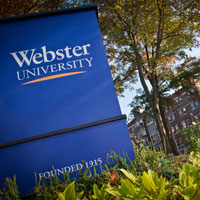 Webster University’s School of Education was granted accreditation for 22 educator
certification programs by the Council for the Accreditation of Educator Preparation
(CAEP), which sets standards on educator preparation and is considered to have one
of the most rigorous standards nationally.
Webster University’s School of Education was granted accreditation for 22 educator
certification programs by the Council for the Accreditation of Educator Preparation
(CAEP), which sets standards on educator preparation and is considered to have one
of the most rigorous standards nationally.
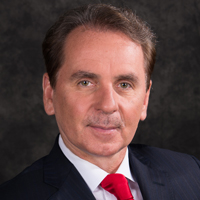 “This is excellent news for Webster University and the School of Education, as it
affirms that our programs that prepare educators are meeting the highest standards,”
said Webster University President Julian Z. Schuster. “I offer my congratulations
to everyone who spent countless hours making sure our programs meet the rigorous standards
set by CAEP.”
“This is excellent news for Webster University and the School of Education, as it
affirms that our programs that prepare educators are meeting the highest standards,”
said Webster University President Julian Z. Schuster. “I offer my congratulations
to everyone who spent countless hours making sure our programs meet the rigorous standards
set by CAEP.”
Earning CAEP accreditation was a multi-year process that included documentation of current practices, two reports with dozens of pieces of supporting evidence, and participation from alumni, students, faculty, staff, and area K-12 administrators in interviews during a virtual site visit led by a team of peer reviewers from CAEP.
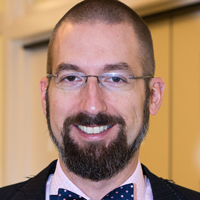 “Having served on more than a dozen site visits for other institutions, I know how
rigorous this process can be. In most cases, institutions finish the process with
several Areas for Improvement—or AFIs—that should be addressed between now and the
next accreditation visit. Webster met all of the standards and received no AFIs,”
said DJ Kaiser, associate dean in the School of Education and a member of the committee
that managed the accreditation effort. “This is the best possible outcome, and it
means even more because the CAEP team cited multiple interviews with students, alumni,
and K–12 partners as evidence of the high-quality programs we offer for educators.”
“Having served on more than a dozen site visits for other institutions, I know how
rigorous this process can be. In most cases, institutions finish the process with
several Areas for Improvement—or AFIs—that should be addressed between now and the
next accreditation visit. Webster met all of the standards and received no AFIs,”
said DJ Kaiser, associate dean in the School of Education and a member of the committee
that managed the accreditation effort. “This is the best possible outcome, and it
means even more because the CAEP team cited multiple interviews with students, alumni,
and K–12 partners as evidence of the high-quality programs we offer for educators.”
The School of Education had already been accredited by the National Council for the Accreditation of Teacher Educators (NCATE), with its last accreditation granted in 2014. NCATE merged with the Teacher Education Accreditation Council (TEAC) in September of 2014 to become CAEP. Webster joins 10 other institutions in Missouri with CAEP accreditation and is one of only three institutions in the St. Louis area to receive CAEP accreditation.
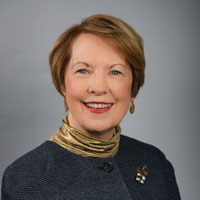 "The process by which CAEP assures the quality of educator preparation programs stands
in a long tradition of rigorous assessment,” said Webster University Chancellor Elizabeth
(Beth) J. Stroble. “Achieving this strong result reflects well on the quality of our
programs and provides confidence in Webster's outstanding graduates."
"The process by which CAEP assures the quality of educator preparation programs stands
in a long tradition of rigorous assessment,” said Webster University Chancellor Elizabeth
(Beth) J. Stroble. “Achieving this strong result reflects well on the quality of our
programs and provides confidence in Webster's outstanding graduates."
All of Webster’s educator certification programs are approved and accredited by the Missouri Department of Elementary and Secondary Education (DESE). In Missouri, CAEP accreditation includes programs that lead to either an initial or advanced educator certification and require completion of a degree program. Twenty-two programs were reviewed in this accreditation cycle, the majority of which are in the School of Education:
The BA in Education (initial certification)
- Mathematics (9-12)
- Art (K-12)
- French (K-12)
- Biology (9-12)
- Elementary Education (1-6)
- English (9-12)
- German (K-12)
- Language Arts (5-9)
- Mathematics (5-9)
- Special Education Mild-Moderate Cross Categorial (K-12)
- Science (5-9)
- Social Science (5-9)
- Social Science (9-12)
- Spanish (K-12)
The Master of Arts in Teaching (initial certification)
- Elementary Education
- Middle School Education
- Secondary Education
- Special Education
The Bachelor’s in Music Education, in the Leigh Gerdine College of Fine Arts, was also reviewed during this CAEP accreditation cycle and was included in the accreditation action report as receiving CAEP accreditation. The Bachelor’s in Music Education is also accredited by the National Association of Schools of Music (NASM).
A few advanced-level programs (beyond initial teacher certification) were also reviewed, including the Education Specialist degree in School Psychology. All reviewed initial teacher and advanced-level certification programs were listed in the accreditation action report.
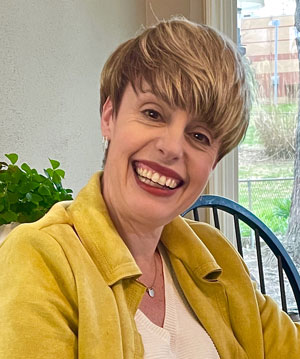 “The fact that so many of our programs earned accreditation with no areas identified
for improvement is an impressive accomplishment and the result of the extensive, collaborative
work of all in the School of Education,” said Associate Professor Stephanie Mahfood,
the incoming interim dean of the School of Education. “I’m pleased the accreditation
board recognizes the extraordinary efforts of the School of Education faculty and
staff who consistently strive to ensure the preparation of our future educational
professionals is of the highest pedagogical quality. Education, especially in a pandemic,
is constantly shifting. The vision and flexibility of our faculty and staff is truly
remarkable.”
“The fact that so many of our programs earned accreditation with no areas identified
for improvement is an impressive accomplishment and the result of the extensive, collaborative
work of all in the School of Education,” said Associate Professor Stephanie Mahfood,
the incoming interim dean of the School of Education. “I’m pleased the accreditation
board recognizes the extraordinary efforts of the School of Education faculty and
staff who consistently strive to ensure the preparation of our future educational
professionals is of the highest pedagogical quality. Education, especially in a pandemic,
is constantly shifting. The vision and flexibility of our faculty and staff is truly
remarkable.”
The process of earning the accreditation started more than two years ago. A self-study report was initially submitted and then reviewed by peer educators who provided feedback and additional questions. An addendum to the report, along with evidence to support the report’s conclusions, were then submitted. The process concluded with a virtual site visit in November 2021.
CAEP’s Accreditation Council met in April to make their final decision after reviewing reports submitted by the Webster University and the CAEP site review team. The University was notified on May 27 that accreditation was granted.
CAEP’s mission is to “advance equity and excellence in educator preparation through evidence-based accreditation that assures quality and supports continuous improvement to strengthen P–12 student learning.” CAEP is accredited by the Council for Higher Education Accreditation (CHEA). More than 460 institutions have been recognized for excellence in educator preparation by CAEP, and Webster University is one of the newest institutions to join that list.
In addition to this CAEP accreditation, the MA in TESL (Teaching English as a Second Language) and the MA in Reading each hold Specialized Professional Association (SPA) recognition, which is done through a process managed by CAEP and other professional associations. Webster’s TESL and Reading programs are the only Missouri programs to hold SPA recognitions in their respective fields.
For more information about CAEP, visit https://caepnet.org/.
